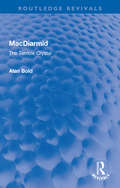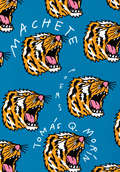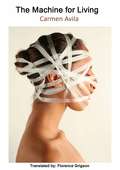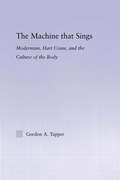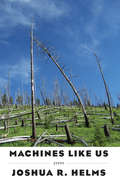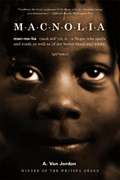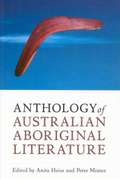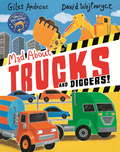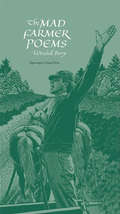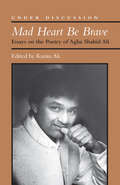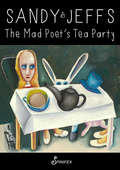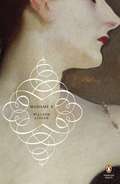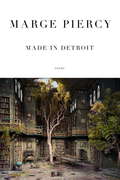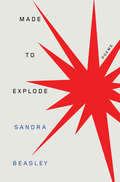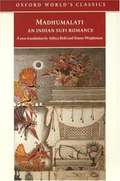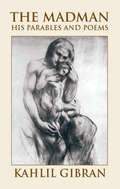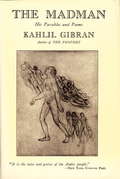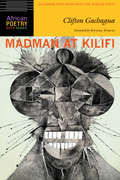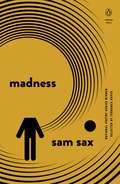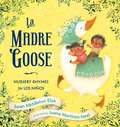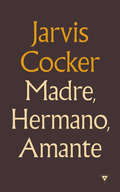- Table View
- List View
MacDiarmid: The Terrible Crystal (Routledge Revivals)
by Alan BoldFirst published in 1983, Hugh MacDiarmid: The Terrible Crystal is a detailed introduction to the poetry of Hugh MacDiarmid. Hugh MacDiarmid’s poetry shows a persistent search for a consistent intellectual vision that reveals, in all its facets, the source of creativity recognised by the poet as ‘the terrible crystal’. This introduction to his poetry shows that MacDiarmid’s great achievement was a poetry of evolutionary idealism, that draws attention to itself by a series of culture shocks. It places MacDiarmid as a nationalist poet in an international context: a man whose unique concept of creative unity enabled him to combine the Scottish tradition with the linguistic experimentation of Joyce and Pound. Hugh MacDiarmid: The Terrible Crystal is ideal for those with an interest in the poetry of Hugh MacDiarmid, Scottish poetry, and poetry and criticism more broadly.
Machete: Poems
by Tomás Q. MorínThis fresh voice in American poetry wields lyric pleasure and well-honed insight against a cruel century that would kill us with a thousand cuts. "Morín's writing uses the mundane details of everyday life...as a jumping-off point for creating fascinating and philosophical worlds." —LitHub"Dios aprieta, pero no ahorca" ("God squeezes, but He doesn't strangle")--the epigraph of Machete--sets the stage for a powerful poet who summons a variety of ways to endure life when there's an invisible hand at your throat. Tomás Morín hails from the coastal plains of Texas, and explores a world where identity and place shift like that ever-changing shore. In these poems, culture crashes like waves and leaves behind Billie Holiday and the CIA, disco balls and Dante, the Bible and Jerry Maguire. They are long, lean, and dazzle in their telling: "Whiteface" is a list of instructions for people stopped by the police; "Duct Tape" lauds our domestic life from the point of view of the tape itself. One part Groucho Marx, one part Job, Morín considers our obsession with suffering--"the pain in which we trust"--and finds that the best answer to our predicament is sometimes anger, sometimes laughter, but always via the keen line between them that may be the sharpest weapon we have.
The Machine for Living
by Carmen AvilaThe Machine for Living - A book of poems on the body and the senses A book of poems about the human body, senses and emotions. This work, that bears the title of a poem by Paul Valéry, has managed to embody a great sensitivity and a sonorous quality. This work was a finalist in the XIII María del Villar de Navarra Poetry Contest in Spain and also received an honorable mention in the 2008 Francisco Cervantes Vidal National Poetry Prize in Querétaro, México.
The Machine that Sings: Modernism, Hart Crane and the Culture of the Body (Studies in Major Literary Authors #21)
by Gordon A. TapperExamining how Crane's corporeal aesthetic informs poems written across the span of his career, The Machine That Sings focuses on four texts in which Crane's preoccupation with the body reaches its apoge. Tapper treats Voyages, The Wine Merchant, and Possessions as a triptych of erotic poems in which Crane plays out alternative resolutions to the dialectic between purity and defilement, a conceptual dynamic which Tapper argues is central to both Crane's poetics of difficulty and his representations of homosexual desire. Tapper concentrates on the three sections of The Bridge, most concerned with recuperating animality: 'National Winter Garden,' 'The Dance,' and 'Cape Hatteras.'
Machines Like Us
by Joshua R. HelmsMachines Like Us is part love story, part dreamscape, part exploration of self. This surreal and disjointed novella-in-verse follows its characters (the speaker, Boy, and Historian) as their acts of love and violence become indistinguishable. For these characters, love is dangerous, disorienting, self-erasing, traumatizing. Identities blur. Memories muddle. Bodies change. It becomes difficult for them to understand themselves as individuals without first investigating the boundaries separating each from theother: "there is no way to tell us / apart there is no way to know / whose hand is at the camera” Throughout the book, the speaker, Boy, and Historian struggle to connect and disconnect, to tether and un-tether, to survive, to make sense and meaning in and out of their relationships with each other. They are terrified to be both with and without each other, and the resulting horror -- the blood, the broken bodies, the decay, the changing faces -- becomes a landscape the characters can’t shake.
Macmillan/McGraw-Hill Reading 5th Grade
by James Flood Jan E. Hasbrouck James V. Hoffman Diane Lapp Donna Lubcker Angela Shelf Medearis Scott Paris Steven Stahl Josefina Villamil Tinajero Karen D. WoodThis book is one of a series of Macmillan / McGraw-Hill elementary school reading texts. This text is for Grade 5.
Macnolia
by A. Van JordanIn 1936, teenager MacNolia Cox became the first African American finalist in the National Spelling Bee Competition. Supposedly prevented from winning, the precocious child who dreamed of becoming a doctor was changed irrevocably. Her story, told in a poignant nonlinear narrative, illustrates the power of a pivotal moment in a life.
Macquarie Pen Anthology of Aboriginal Literature
by Peter Minter Anita HeissA groundbreaking collection of work from some of the great Australian Aboriginal writers, the MACQUARIE PEN ANTHOLOGY OF ABORIGINAL LITERATURE offers a rich panorama of over 200 years of Aboriginal culture, history and life. From Bennelong's 1796 letter to contemporary creative writers, Anita Heiss and Peter Minter have selected work that represents the range and depth of Aboriginal writing in English. The anthology includes journalism, petitions and political letters from both the nineteenth and twentieth centuries, as well as major works that reflect the blossoming of Aboriginal poetry, prose and drama from the mid-twentieth century onwards. Literature has been used as a powerful political tool by Aboriginal people in a political system which renders them largely voiceless. These works chronicle the ongoing suffering of dispossession, but also the resilience of Aboriginal people across the country, and the hope and joy in their lives. With some of the best, most distinctive writing produced in Australia, this anthology is invaluable for anyone interested in Aboriginal writing and culture.
Mad About Trucks and Diggers!
by Giles AndreaeA colourful rhyming picture book all about trucks and diggers, from the author of international bestseller, Giraffes Can't Dance.Is your little one mad about trucks and diggers? Then they'll love this bright, bold book, packed with all sorts of vehicles - including dumper trucks, diggers, cranes, fire engines, transporters and more. Read about all the amazing things they do, then decide which one you would choose to drive!From the creators of the bestselling Rumble in the Jungle and Commotion in the Ocean.
The Mad Farmer Poems
by Wendell BerryDuring the otherwise quiet course of his life as a poet, Wendell Berry has become “mad” at what contemporary society has made of its land, its communities, and its past. This anger reaches its peak in the poems of the Mad Farmer, an open–ended sequence he's found himself impelled to continue against his better instincts. These poems can take the shape of manifestos, meditations, insults, Whitmanic fits and ravings—these are often funny in spite of themselves. The Mad Farmer is a character as necessary, perhaps, as he is regrettable.Here are gathered the individual poems from Berry's various collections to offer the teachings of this amazing American voice. After the great success of the lovely Window Poems, Bob Baris of the Press on Scroll Road returns to design and produce an edition illustrated with etchings by Abigail Rover. James Baker Hall and William Kloefkorn offer poems here that also show how the Mad Farmer has escaped into the work of others. The whole is a wonderful testimony to the power of anger and humor to bring even the most terrible consequences into a focus otherwise impossible to obtain.
Mad Heart Be Brave: Essays on the Poetry of Agha Shahid Ali
by Mohammed Kazim AliBorn and raised in Kashmir, Agha Shahid Ali (1949–2001) came to the United States in the mid-1970s to pursue graduate study in literature; by the mid-1980s, he had begun to establish himself as one of the most important American poets of the late 20th century. Mad Heart Be Brave: On the Poetry of Agha Shahid Ali is the first comprehensive examination of all stages of his career, from his earliest work published in India but never reissued in the U.S., through his seven poetry volumes from American publishers, ultimately collected as The Veiled Suite. The essays, written by a range of poets and scholars, many of whom knew and studied with Ali, consider his early free verse poetry; his transition into writing more formalist poetry; his correspondence with poets Anthony Hecht and James Merrill; his literary engagement with the political realities of contemporary Kashmir; his teaching and mentorship of young poets; and Ali’s championing of the ghazal, a traditional Eastern poetic form, in English. Some essays have a predominantly scholarly focus, while others are more personal in their tone and content. All exhibit a deep appreciation for Ali’s life and work. Contributors to this volume include Sejal Shah, Rita Banerjee, Amanda Golden, Ravi Shankar, Abin Chakraborty, Amy Newman, Christopher Merrill, Jason Schneiderman, Stephen Burt, Raza Ali Hassan, Syed Humayoun, Feroz Rather, Dur e Aziz Amna, Mihaela Moscaliuc, Reginald Dwayne Betts, Mahwash Shoaib, Shadab Zeest Hashmi, Grace Schulman, and Ada Limón. Mad Heart Be Brave closes with a long biographical sketch and elegy by Agha Shahid Ali’s friend Amitav Ghosh and a comprehensive bibliography assembled by scholar Patricia O’Neill with Reid Larson.
The Mad Poet's Tea Party
by Sandy Jeffsbut I am madnessand madness is meit holds you captivelike a hapless bunnycaught in the headlights.In this moving collection of poems, award-winning writer Sandy Jeffs shares her journey through madness over four decades, drawing inspiration from Lewis Carroll's Alice in Wonderland and the motley gathering of characters at the Mad Hatter's tea party. Both delightful and insightful, playful and serious, witty and whimsical, The Mad Poet's Tea Party provides a devastating commentary on how our society treats those with mental illness from the perspective of someone who has experienced all its interventions. It captures in poetic form the enigmas and contradiction in madness.
Madame X
by William LoganThe moody poems in Madame X, William Logan’s tenth collection, find their subjects in the byways of the past two centuries. Henry James visits his birthplace, the most beautiful woman in Europe ends up in a barrel at a fun fair, and a minor writer succumbs to tuberculosis at a German spa. In the title poem, the portrait of Madame X offers our century a lesson in seduction; but such public shows are balanced by poems of private desire, of the whispers of age, of the present always vanishing before us. These densely figured poems, rich in language and appointment, argue for a knowledge not sustained by the everyday.
Made in Detroit
by Marge PiercyA treasure trove of new poems by one of our most sought-after poets: poems that range from descriptions of the Detroit of her childhood to her current life on Cape Cod, from deep appreciations of the natural world to elegies for lost friends and relationships, from a vision of her Jewish heritage to a hard-hitting take on today's political ironies.In her trademark style, combining the sublime with the gritty, Marge Piercy describes the night she was born: "the sky burned red / over Detroit and sirens sharpened their knives. / The elms made tents of solace over grimy / streets and alley cats purred me to sleep." She writes in graphic, unflinching language about the poor, banished now by politicians because they are no longer "real people like corporations." There are elegies for her peer group of poets, gone now, whose work she cherishes but from whom she cannot help but want more. There are laments for the suicide of dolphins and for her beloved cats, as she remembers "exactly how I loved each." She continues to celebrate Jewish holidays in compellingly original ways and sings praises of her marriage and the small pleasures of daily life.This is a stunning collection that will please those who already know Marge Piercy's work and offer a splendid introduction to it for those who don't.From the Hardcover edition.
Made of Ice: Sahitya Akademi Award Winning Collection of Poems
by Vasdev MohiVasdev Mohi’s ghazals included in this collection Made of Ice are different in their own accord. Ghazal has predominantly expressed emotional intensity. It has been befitting to the conventional themes such love. romance, longing for something loved and lost or the celebration of human joys. etc. This emotional flavour of ghazal has been described as "feminine" by some scholars. At the hands of statwarts such as Arjan Hasid and Vasdev Mohi, scholars point out that ghazal is shedding off its feminine characteristics and is becoming more and more masculine. This assertion must be taken in the right spirit that losing of the feminine character far from being a lacunae is an asset of ghazal. The poet has succeeded in presenting complex thoughts with refined touch of emotion which is a rare achievement. His ghazals are not sentimental cry.
Made to Explode: Poems
by Sandra BeasleyWith lacerating honesty, technical mastery, and abiding compassion, Made to Explode offers volatile poems for our volatile times. In her fourth collection, acclaimed poet Sandra Beasley interrogates the landscapes of her life in decisive, fearless, and precise poems that fuse intimacy and intensity. She probes memories of growing up in Virginia, in Thomas Jefferson’s shadow, where liberal affluence obscured and perpetuated racist aggressions, but where the poet was simultaneously steeped in the cultural traditions of the American South. Her home in Washington, DC, inspires prose poems documenting and critiquing our capital’s institutions and monuments. In these poems, Ruth Bader Ginsberg shows up at the Folger Shakespeare Theatre’s show of Kiss Me Kate; Albert Einstein is memorialized on Constitution Avenue, yet was denied clearance for the Manhattan Project; as temperatures cool, a rain of spiders drops from the dome of the Jefferson Memorial. A stirring suite explores Beasley’s affiliation with the disability community and her frustration with the ways society codes disability as inferiority. Quintessentially American and painfully timely, these poems examine legacies of racism and whiteness, the shadow of monuments to a world we are unmaking, and the privileges the poet is working to untangle. Made to Explode boldly reckons with Beasley’s roots and seeks out resonance in society writ large.
Madhumalati
by Aditya Behl Simon Weightman Mir Sayyid Manjhan Shattari RajgiriThe mystical romance Madhumalati tells the story of a prince, Manohar, and his love for the beautiful princess Madhumalati. When they are separated they have to endure suffering, adventure, and transformation before they can be reunited and experience true happiness. A delightful love story,the poem is also rich in mystical symbolism and the story of the two lovers represents the stages on the spiritual path to enlightenment. Madhumalati was written in the sixteenth century and it is an outstanding example of Sufi literature in the Indian Islamic tradition. Originally written in adialect of Eastern Hindi it is here translated for the first time into English verse, with an introduction and notes that explain the poem's religious significance.
The Madman: His Parables and Poems
by Kahlil GibranWidely known in America as author of The Prophet, which sold more copies in the 20th century than any other book but the Bible, the great Lebanese-American poet and artist Kahlil Gibran (1883–1931) first became known to Americans in 1918 with the publication of The Madman.Thought-provoking and inspiring, the book is a collection of memorable, life-affirming parables and poems, many of them casting an ironic light on the beliefs, aspirations, and vanities of humankind — and many reminiscent of the work of Tagore and Nietzsche, both of whom were strong influences on Gibran.Among the 35 poems and parables in this volume are "How I Became a Madman," "The Two Hermits," "The Wise Dog," "The Good God and the Evil God," "Night and the Madman," "The Three Ants," "When My Sorrow Was Born," "And When My Joy Was Born," and many more.The book includes several illustrations by the author, whose exquisite drawings are reminiscent of Rodin and the best of Blake. ". . . the greatest of Arab Romantics and father of a 20th-century Romantic tradition whose impact on Arab writers has been at least as strong as that of 19th-century figures such as Wordsworth and Keats on their English-speaking counterparts." — Dr. Suheil Bushrui, Director of the Kahlil Gibran Chair on Values and Peace, University of Maryland
The Madman
by Kahlil Gibran"This volume is in part translation from the Arabic parables, in part written directly in English. A small book of only seventy pages, it is a product of the poet's youth and early manhood, rich with promise of what was to follow. It is entirely of the East, with no shading of Western thought or content. It is an expression of the passionate inner life not yet restrained and controlled by the vaster wisdom andcompassion that came to bud in The Forerunner and to full flower in The Prophet . . ."Here for the first time Gibran registers fully his sense of that aloneness which remained with him always, even unto the end. Always he was alien to this planet, to this time and this scene, yet always he battled to reduce this distance between himself and ourselves. But as he once said, 'Ye would not.'"--Barbara Young, in This Man from Lebanon: A Study of Kahlil Gibran
Madman at Kilifi (African Poetry Book)
by Clifton GachaguaClifton Gachagua’s collection Madman at Kilifi, winner of the Sillerman First Book Prize for African Poets, concerns itself with the immediacy of cultures in flux, cybercommunication and the language of consumerism, polyglot politics and intrigue, sexual ambivalence and studied whimsy, and the mind of a sensitive, intelligent, and curious poet who stands in the midst of it all. Gachagua’s is a world fully grounded in the postmodern Kenyan cultural cauldron, a world in which people speak with “satellite mouths,” with bodies that are “singing machines,” and in which the most we can do is “collide against each other.” Here light is graceful, and we glow like undiscovered galaxies and shifting matter. And here as well, we find new expression in a poetry that moves as we do.
Madness
by Sam SaxAn “astounding” (Terrance Hayes) debut collection of poems – Winner of the 2016 National Poetry Series CompetitionIn this powerful debut collection, sam sax explores and explodes the linkages between desire, addiction, and the history of mental health. These brave, formally dexterous poems examine antiquated diagnoses and procedures from hysteria to lobotomy; offer meditations on risky sex; and take up the poet’s personal and family histories as mental health patients and practitioners. Ultimately, Madness attempts to build a queer lineage out of inherited language and cultural artifacts; these poems trouble the static categories of sanity, heterosexuality, masculinity, normality, and health. sax’s innovative collection embodies the strange and disjunctive workings of the mind as it grapples to make sense of the world around it.
La madre goose: Nursery Rhymes For Niños
by Susan Elya Juana Martinez-NealClassic Mother Goose rhymes get a Latino twist in this cozy collection. From young Juan Ramón sitting in el rincón to three little gatitos who lost their mitoncitos, readers will be delighted to see familiar characters in vibrant, luminous scenes brimming with fanciful details.
Madre, hermano, amante
by Jarvis CockerEn este libro encontramos por primera vez una selección de las mejores letras de Jarvis Cocker, presentadas por una introducción y comentadas por él mismo. Son letras mordaces, irónicas, generacionales y pueden considerarse una especie de poemario sobre la cultura actual. Un libro fascinante, no solo para los fans de Pulp o de Jarvis Cocker sino también para los amantes de la buena poesía, de las canciones con mensaje que son mucho más que canciones: son el reflejo de una época.«Quiero vivir como la gente corriente, quiero hacer lo que hace la gente corriente, quiero acostarme con gente corriente, quiero acostarme con gente corriente como tú. Entonces, ¿qué otra cosa podía hacer? Le dije: #Veré qué puedo hacer#.»Extracto de la canción, «Common people», Pulp
Madurai Meenatchi Ammai Pillai Tamizh
by KumarakurupararPillai Tamil or the "Tamil of Childhood" is one of the ninety-six forms of minor poetical compositions.In this literary compositon, Kumaraguruparar expresses his deep love for Tamil, as in his other works also, with apt descriptions and illustrations while delineating the characteristics of Goddess Meenakshi.
